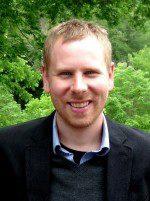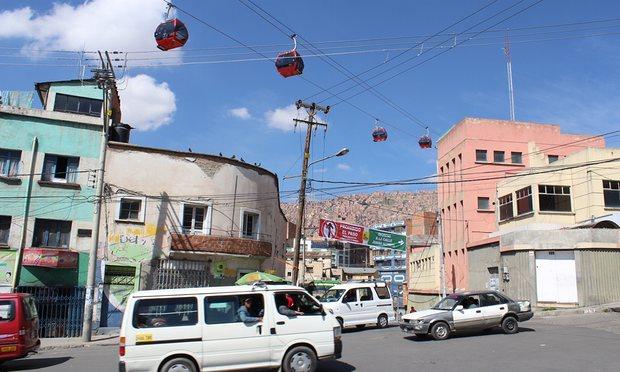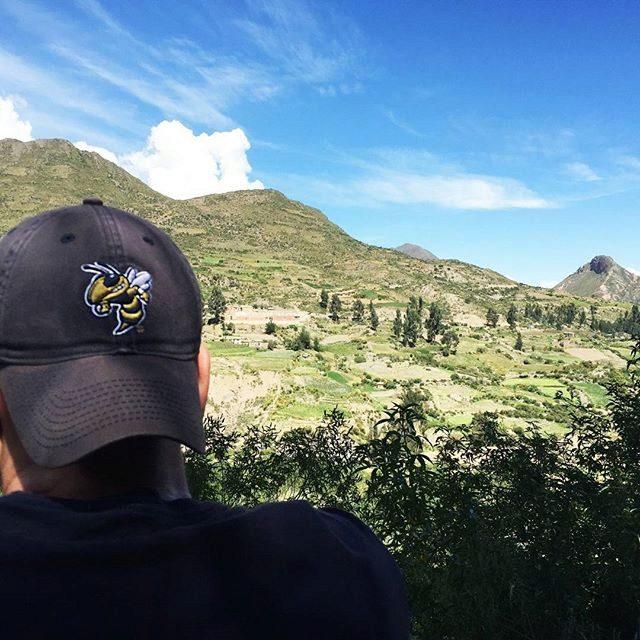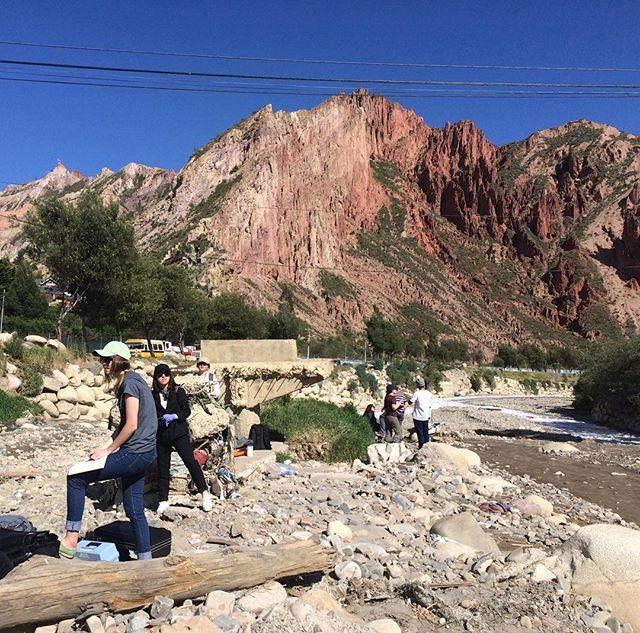Assistant professor Joe Brown doesn't take clean drinking water for granted, and he has traveled the world in an effort to help make it as accessible as possible, especially in developing countries. Along the way he has learned plenty about international travel, and has some discovered some great vacation spots that you might not have heard of.
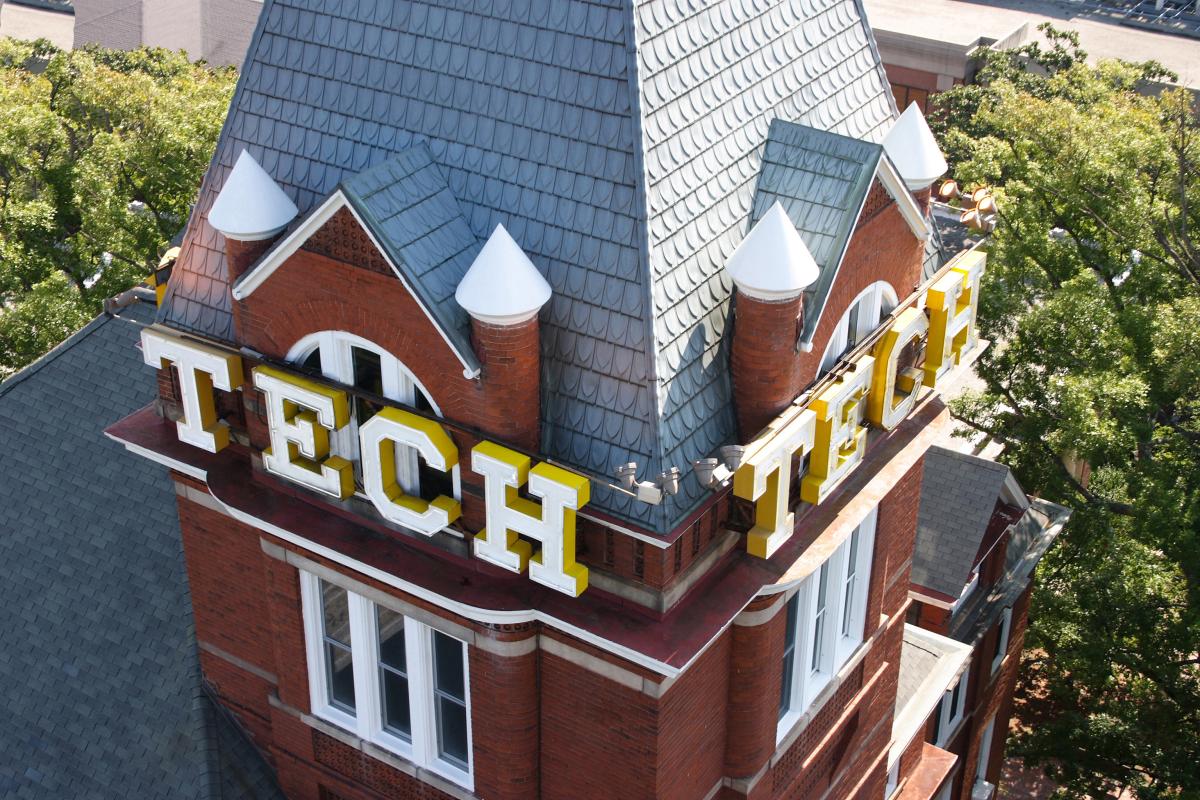
Where did you grow up and how did you end up at Georgia Tech?
I'm from Selma, Alabama. I grew up in Selma and Mobile. I did my PhD at UNC Chapel Hill, where I met my wife, who is from North Carolina. I worked at a number of universities, most recently the London School of Hygiene and Tropical Medicine in London. We moved from London to Atlanta two years ago. We wanted to be back in the southeast to be close to our families, and as an environmental engineer who studies public health this turned out to be a perfect fit for us.
What does your research focus on?
I study problems associated with drinking water quality and sanitation. A lot of the persistent public health problems that we have in the world are related to infrastructure and environmental quality. I study those connections both from an engineering and technology point of view and also as a way of trying to improve people's lives where the risk is the greatest. The result is that my work takes me to a lot of exotic places around the world. I do a lot of work domestically as well, but much of my work is international.
I work in Africa, primarily in Zambia and Mozambique. I've worked all over sub-Saharan Africa. I did my PhD work in Cambodia and still do some work in Southeast Asia, including in Cambodia and Vietnam. Increasingly I'm working in India and in south Asia. I did my masters work in South America, in Bolivia, and I still go back there on a pretty frequent basis. I take one of my classes to Bolivia with me- CEE 4350. It's a field based class where we travel to Bolivia every spring break and we do hands on research projects around environmental quality- water quality and air quality, in and around the city of La Paz. I do a lot of travel.
Is it hard to get students to give up their spring break to do course work?
Not at all. It's a competitive admission to get into the course. Not everybody gets in, so it's a huge draw within our school, but it's open to any students from across the College of Engineering. We had a couple of folks from outside CEE take the course this year. Everyone loves it. It's not Panama City Beach, but it's a pretty good experience for spring break. You can read more about the students' experiences in this story.
What challenges does your research address?
Mostly I study infectious diseases associated with poor sanitation. That means viruses, bacteria, protozoa, parasites, helminths, worms, which are transmitted as a result of poor sanitation. Drinking water is just one of the ways people get exposed to these nasty bugs. Globally, they are essentially diseases of poverty. They effect people who live in areas where the infrastructure isn't so great. In terms of public health, some of the things that are still the most prevalent means of sickness and death among kids under 5 years old are poor air quality, poor water quality, and poor sanitation. The priorities of my research group are completely aligned with global health priorities.
How much progress is being made globally in those areas?
We've made incredible progress on water quality, but not as much with sanitation. It remains one of the intractable challenges of global development. You may have heard of the Millennium Development Goals. We met the Millennium Development Goal for drinking water but not for sanitation. The goals covered the period from 1990 to 2015. Now we have the Sustainable Development Goals which are the internationally agreed upon direction for global development. They are a series of normative goals. They're very ambitious, so it remains to be seen if we'll make enough progress to meet the sanitation goal. We are making progress, but the problem is that the population is also growing and urbanization is a megatrend that's impacting the developing world in particular. Africa has always been majority rural, but by 2030 it will be majority urban. With those urbanization pressures there is even more pressure to meet the basic needs of people, and often with declining resources. So we've made progress, but it's a daunting challenge.
Do you have favorite places to visit?
I love Bolivia. It's probably my favorite place to travel. It’s the second-poorest country in the western hemisphere (after Haiti) but the people are great and it’s very affordable. The scenery is breathtaking. La Paz is a fascinating city, located in bowl high up in the Andes. The city has grown up the sides of the bowl, and in the last few years they’ve built a cable car system to take workers from the rims of the bowl where they live down into the city center where the jobs are. It’s an incredible engineering feat, especially for such a poor country. It’s changing lives, and changing the city. It used to take people hours to get into the city, and now it takes minutes.
Aside from Bolivia, I like places where I can dive. I grew up diving with my family and we’ve had opportunities to travel all over the world. One of my favorite spots for that is Little Corn Island off the coast of Nicaragua. It’s a small island, and to get there you have to travel to Nicaragua, take a plane to Big Corn Island, then a small boat to the little island. It’s rustic, but like Bolivia it’s affordable and the people are very friendly. The diving there is incredible.
Generally, if I’m not traveling for work I like to go places where I can experience the outdoors. Wherever I go, for research or pleasure, I try to enjoy the culture and nature, if I can. I like to go hiking or walk around the towns and cities. Like I said, I’ve been spending more time in south Asia lately, and that’s a great place to visit. Africa is incredible too.
Do you have any travel advice?
I’m a horrible person to ask for packing tips. I pack lightly and at the last minute. If I forget something I buy it at my destination. Otherwise, the key is to be flexible. Most engineers are type A and we like to plan and schedule, but that doesn’t work well in the places I go. People tend to do things at their own pace so you have to learn to relax and roll with it. It’s not worth getting stressed out over, whether it’s a change in your flight plans, transportation, meetings, or whatever.
